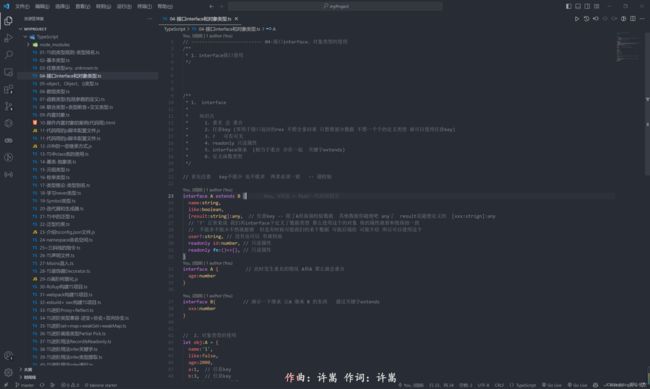- Spring Boot整合Redis快速入门实例
oscar999
SpringBoot实战开发大全redisspringbootjava
本篇演示环境本篇基于SpringBoot2.5.0,关于Redis的安装,可以参考:Redis介绍、安装与初体验和Windows下安装和使用Redis。整合步骤导入Redis相关的依赖项配置启动器spring-boot-starter-data-redisorg.springframework.bootspring-boot-starter-data-redis添加连接Redis服务器的相关配置在
- LangChain —— 多模态大模型的 prompt template
Miyazaki_Hayao
LangChainlangchainprompt
文章目录一、如何直接将多模态数据传输给模型二、如何使用mutimodalprompts一、如何直接将多模态数据传输给模型 在这里,我们演示了如何将多模式输入直接传递给模型。对于其他的支持多模态输入的模型提供者,langchain在类中提供了内在逻辑来转化为期待的格式。 传入图像最常用的方法是将其作为字节字符串传入。这应该适用于大多数模型集成。importbase64importhttpximage
- Spring Boot 整合Swagger启动失败Failed to start bean ‘documentationPluginsBootstrapper‘的解决方案
码云217
springbootjavarpc
目录问题原因方案一(治标)[本人用了方案一解决了]方案二(治标)方案三(治本)问题SpringBoot2.7.3版本引入依赖springfox-boot-starter(Swagger3.0)后,启动容器会报错:org.springframework.context.ApplicationContextException:Failedtostartbean'documentationPlugins
- HarmonyOS Next 应用开发实战:构建高性能动画组件(ArkTS深度解析)
前端
第一章案例背景与技术选型###1.1项目需求分析本案例将实现一个复杂的粒子动画登录界面,包含以下核心功能:1.动态粒子背景:300+粒子按流体力学规律运动2.智能输入框:输入时触发粒子聚散动画3.登录按钮:3D翻转交互动效4.性能优化:确保60fps流畅运行1.2技术方案设计采用ArkTS实现以下技术组合:typescript//粒子对象数据结构classParticle{x:number=0y:
- CSDN博客写作教学(四):标题优化与SEO实战
Code_流苏
CSDN博客博客写作写作教学标题优化markdown
导语(第一篇)Markdown编辑器基础(第二篇)Markdown核心语法(第三篇)文章结构化思维通过前三篇教程,相信你已经熟悉了Markdown排版与结构化写作的核心技能。但你是否发现:文章质量高却阅读量低?搜索排名总在竞争对手之后?专栏粉丝增长缓慢?问题可能出在标题吸引力不足与SEO策略缺失!本文将揭秘CSDN平台的流量密码,教你从算法与读者双重视角优化标题,让每篇博客都成为“流量磁铁”!名人
- Pulsar官方文档翻译-概念和架构-基于地理位置复制(Geo Replication)
爱码叔
Pulsar官方文档翻译Pulsargeoreplication概念架构
博主:爱码叔个人博客站点:[icodebook](https://icodebook.com/)公众号:爱码叔漫画软件设计(搜:爱码叔)专注于软件设计与架构、技术管理。擅长用通俗易懂的语言讲解技术。对技术管理工作有自己的一定见解。文章会第一时间首发在个站上,欢迎大家关注访问!官网原文标题《ConceptsandArchitecture--GeoReplication》翻译时间:2018-11-05
- 简单爬取一下电影排行
孟婆来包棒棒糖~
数据库python爬虫
主要用到了requests和xpath来解析数据,然后储存在mysql数据库中,不过代码方面我是先写好简单实现工作,然后让ai帮我用类封装来成功实现,博主比较菜,如果有反爬措施可以找js逆向视频来学习importrequestsfromfake_useragentimportUserAgentfromlxmlimportetreeimportpymysqlfrompymysql.cursorsim
- 【网络安全 | 扫描子域+发现真实IP】CloakQuest3r安装使用详细教程
秋说
网安渗透工具使用教程(全)web安全子域名扫描渗透工具
原创文章,禁止转载。本文仅作学习交流使用,不得用于非法渗透,笔者不承担任何责任。文章目录简介功能介绍执行流程限制安装步骤可选功能:SecurityTrailsAPI使用示例简介CloakQuest3r是一款强大的Python工具,专为揭示受Cloudflare及类似服务保护的网站真实IP地址而设计。Cloudflare作为广泛应用的Web安全与性能优化服务,其防护机制可隐藏网站的实际IP,而Clo
- maven:Maven插件开发实践:动态依赖注入与架构演进说明
10km
javamavenjavapluginartifact
最近的工作中设计了一个maven插件,需要在插件执行时的增加新的依赖库,本文作为总结,说明如何在插件执行时自主注入新的依赖库。动态依赖注入实现示例解析通过ExampleMojo插件,我们可以在编译阶段动态注入指定的依赖:publicvoidexecute()throwsMojoExecutionException{ArtifactSupport.injectCacheEngine(project,
- 【网络安全 | 渗透工具】小程序反编译分析源码 | 图文教程
秋说
网安渗透工具使用教程(全)web安全漏洞挖掘小程序
未经许可,禁止转载。本文仅供学习使用,严禁用于非法渗透测试,笔者不承担任何责任。文章目录1、下载Proxifier2、下载反编译工具unveilr3、寻找小程序文件包4、对文件包进行反编译5、对源码进行分析6、渗透思路6.1、查找敏感信息泄露6.2、解析加解密逻辑6.3、枚举API接口并测试反编译是通过逆向工程将小程序包还原为接近源代码的形式。这一过程能够帮助我们提取大量有价值的信息,从而辅助漏洞
- 基于vue3 + ts 封装一个自定义的message组件
stpzhf
javascript前端vue.js
基于vue3+ts封装一个自定义的message组件今天尝试封装一个message弹框组件废话不多说直接上代码Message.vue这是一个message组件import{onMounted,ref}from'vue'typePropsType={timeout:numberclose:()=>void}const{timeout=3000,close}=defineProps()letvisib
- Spring Web MVC⼊⻔
想进大厂的小王
Spring组件mvc服务器javaspringintellij-ideajava-eespringboot
一、Web开发的基础概念介绍1.socket定义:Socket是网络编程的一个基础概念,代表了两个程序(通常是网络上的不同计算机上的程序)之间的一个通信端点。用途:Sockets主要用于实现低级的网络通信功能。在Java中,java.net.Socket类用于创建一个客户端,而java.net.ServerSocket类用于创建服务器端。通过这些类,可以实现两个应用程序之间的双向通信。特点:Soc
- 【TypeScript】ts在vue中的使用
咔咔库奇
#TypeScripttypescriptvue.jsjavascript
目录一、Vue3+TypeScript1.项目创建与配置项目创建关键配置文件2.完整项目结构示例3.组件Props类型定义4.响应式数据与Ref5.Composition函数复用二、组件开发1.组合式API(CompositionAPI)2.选项式API(OptionsAPI)三、Vue2+TypeScript1.安装依赖2.类组件(VueClassComponent)3.Vuex类型安全四、状态
- vue3使用插件封装指令实现页面滚动动画
前端、小老弟
vue前端animationvue.js前端javascriptcss3动画
效果展示:vue封装插件需要使用到install函数exportdefaultScrollAnimationPlugin={install(app:App,options={}){//需要实现的内容}}vue指令语法:app.directive('scroll-animation',{mounted(el:HTMLDivElement,binding:any){//需要实现的内容}})监听页面滚动
- CVAT标注工具使用与功能测试-Windows下(保姆式教程)
Barry-mapping
docker计算机视觉windows
目录一、安装所需要环境1.1、项目介绍(项目下载地址)1.2、Vue环境配置1.3、配置docker(Windows下)二、CVAT安装和使用2.1、CVAT安装2.2、CVAT使用2.2.1、创建用户(account)2.2.2、基本选项设置(Settings)2.2.3、创建工程(Createanewproject)2.2.4、创建任务(Createanewtask)2.2.5、开始标注(St
- 蓝桥杯备考1
计算机小白进化版CM
程序设计基础学习蓝桥杯算法职场和发展
第一题#includeusingnamespacestd;typedeflonglongLL;intmain(intargc,char*argv[]){inta,b,c,d,e,f,g,h;ints=0;for(a=0;a>,cout用usingnamespacestd;intmain(){printf("%d",'L');//输入字符时注意用‘’单引号。return0;}第三题#includeu
- C语言排序算法
只有月亮知道
排序算法c语言算法
这篇文章总结一下C语言数据结构中常见的几种排序算法。1.直接插入排序直接插入排序的算法思想是,从第二个元素开始,逐个将元素插入到已排序部分。对于每个待插入元素,从后向前扫描已排序部分,找到合适的位置并插入voidInsertSort(int*a,intn){for(inti=1;i=0)//挨个遍历判断大小{if(temp1){gap/=2;//当gap为1时,就为直接插入排序for(inti=0
- python 开启https服务
魔兽-SS
pythonpythonhttps开发语言
importjsonfromflaskimportFlask,Response,requestimportosapp=Flask(__name__)#设置SSL证书路径ssl_cert_path=os.path.join(os.path.dirname(__file__),'certs','self.crt')ssl_key_path=os.path.join(os.path.dirname(__
- Django模型管理器/QuerySet 常见的方法
jay丿
python前端django数据库后端
模型管理器/QuerySet常见的方法get([**kwargs])方法用途:获取满足条件的唯一对象。参数:关键字参数,指定查询条件。返回值:模型对象。异常:如果找到多个对象或未找到对象,将分别抛出MultipleObjectsReturned和DoesNotExist异常。示例:try:student=Student.objects.get(pk=1)exceptStudent.DoesNotE
- 编程小白冲Kaggle每日打卡(17)--kaggle学堂:<机器学习简介>随机森林
AZmax01
编程小白冲Kaggle每日打卡机器学习随机森林人工智能
Kaggle官方课程链接:RandomForests本专栏旨在Kaggle官方课程的汉化,让大家更方便地看懂。RandomForests使用更复杂的机器学习算法。介绍决策树给你留下了一个艰难的决定。一棵有很多叶子的深树会被过度拟合,因为每一个预测都来自它叶子上少数房子的历史数据。但是,叶子很少的浅树表现不佳,因为它无法在原始数据中捕捉到尽可能多的区别。即使是当今最复杂的建模技术也面临着欠拟合和过拟
- HarmonyNext应用开发实战:ArkTS实现高性能动画引擎
前端
本文面向具备HarmonyOS基础知识的开发者,通过实现一个复杂动画引擎案例,深入解析HarmonyNext中ArkTS的高级特性与性能优化策略。第一章:案例背景与核心技术解析本案例将构建一个可交互的粒子动画系统,包含以下技术栈:ArkUI声明式语法:通过组合式组件构建界面动画引擎架构:基于Canvas的底层渲染控制性能优化:Worker线程与渲染主线程协同数学计算:向量运算与三角函数应用技术选型
- myabtis入门案例
HPF_99
mybatisjavamysqljavamybatis
mybatis入门案例1.新建项目(Maven),搭建环境数据库(名:mybatis,表user)导出sql:/*NavicatMySQLDataTransferSourceServer:localhost_3306SourceServerVersion:50162SourceHost:localhost:3306SourceDatabase:mybatisTargetServerType:MYS
- HarmonyNext实战案例:构建一个智能健康监测应用
前端
在本文中,我们将通过一个完整的实战案例,深入探讨如何在HarmonyNext平台上使用ArkTS构建一个智能健康监测应用。该应用将实现以下功能:实时监测用户的心率、步数和睡眠质量,并将数据可视化展示。本文假设读者已经具备一定的编程基础,尤其是对TypeScript或JavaScript有一定的了解,并且熟悉HarmonyNext的基本开发环境。项目概述智能健康监测应用的核心功能包括:心率监测:通过
- 德语语法和词汇
羊羊一洋
学习
Conjugation:sprechenWelcheSprachensprichstdu,Lisa?–IchsprecheDeutsch,EnglischundItalienisch.Likeessenandnehmen,theverbsprechenbelongstotheverbswithavowelchangefrometoiinthesecond-andthird-personsingul
- 万能Prompt模板:三步打造高效Deep Research工作流
赵孝正
伟大变革ChatGPTprompt大数据人工智能
目录**引言:为什么你需要这个模板?****一、模板核心结构****1.研究背景(Context)——奠定认知基线****2.研究需求(Goals)——构建任务蓝图****3.通用要求(Requirements)——把控质量标准****二、实战案例:智能手表传感器选型研究****背景设定****研究指令****输出成果****三、模板优化指南****1.动态调整策略****2.质量校验体系****
- OpenAI API教程
Jachin Huang
大模型指南人工智能语言模型
OpenAIAPI是由OpenAI公司开发,为LLM开发人员提供的一个简单接口。通过此API能在应用程序中方便地调用OpenAI提供的大模型基础能力。OpenAI的API协议已成为LLM领域的标准。本文将首先介绍OpenAIAPI基础知识和模型,然后以ChatCompletionsAPI和EmbeddingAPI为例子介绍OpenAIAPI的用法。最后使用Embedding模型构建一个网站智能问答
- 【arxiv 2024】T2V-CompBench: A Comprehensive Benchmark for Compositional Text-to-video Generation
旋转的油纸伞
视频生成/视频理解T2VSora人工智能python职场和发展
【arxiv2024】T2V-CompBench:AComprehensiveBenchmarkforCompositionalText-to-videoGeneration一、前言Abstract1Introduction2Relatedwork3BenchmarkConstruction3.1PromptGeneration3.2PromptCategories3.3PromptSuiteSt
- Arduino雨水传感器接口教程:检测降雨并测量雨量强度
星际编程喵
Python探索之旅单片机嵌入式硬件python机器学习开发语言硬件工程
前言你是否曾被突如其来的大雨困在门口,望着天上的乌云无奈叹气?或者在大雨滂沱时,想过“要是我能提前知道有雨该有多好”?又或者你想制作一个智能雨天报警系统,但又不知从何下手?别担心,Arduino雨水传感器来帮忙!本教程将带你轻松上手,从硬件接线到代码编写,实现降雨检测与雨量强度测量,让你的Arduino不仅能控制灯光和温度,还能“读懂”天气,成为你生活中的天气助手。在本文中,我们将详细介绍如何将雨
- 查询orace 表属性SQL
元气满满的码农
数据库
工作中要写系统文档,需要导出字段的说明,用这个sql导成excel很方便SELECTa.column_nameAS字段,a.data_typeAS数据类型,a.data_lengthAS长度,a.nullableAS是否为空,a.data_defaultAS默认值,b.commentsAS注释FROMuser_tab_columnsaLEFTJOINuser_col_commentsbONb.co
- 第二九课:HarmonyOS Next设备特性访问与权限管理实践
小_铁
HarmonyOSNextharmonyos华为
一、设备特性访问的技术实现HarmonyOSNext通过系统级能力重构设备访问模式,为开发者提供了安全高效的设备交互方案:统一设备接口调用基于ArkTS语言的@ohos.multimedia.camera等API模块,实现摄像头、麦克风等设备的标准化调用,支持4K视频流采集与AI降噪处理23。新增设备抽象层(DeviceAbstractionLayer),自动适配不同硬件厂商的驱动协议,降低
- 强大的销售团队背后 竟然是大数据分析的身影
蓝儿唯美
数据分析
Mark Roberge是HubSpot的首席财务官,在招聘销售职位时使用了大量数据分析。但是科技并没有挤走直觉。
大家都知道数理学家实际上已经渗透到了各行各业。这些热衷数据的人们通过处理数据理解商业流程的各个方面,以重组弱点,增强优势。
Mark Roberge是美国HubSpot公司的首席财务官,HubSpot公司在构架集客营销现象方面出过一份力——因此他也是一位数理学家。他使用数据分析
- Haproxy+Keepalived高可用双机单活
bylijinnan
负载均衡keepalivedhaproxy高可用
我们的应用MyApp不支持集群,但要求双机单活(两台机器:master和slave):
1.正常情况下,只有master启动MyApp并提供服务
2.当master发生故障时,slave自动启动本机的MyApp,同时虚拟IP漂移至slave,保持对外提供服务的IP和端口不变
F5据说也能满足上面的需求,但F5的通常用法都是双机双活,单活的话还没研究过
服务器资源
10.7
- eclipse编辑器中文乱码问题解决
0624chenhong
eclipse乱码
使用Eclipse编辑文件经常出现中文乱码或者文件中有中文不能保存的问题,Eclipse提供了灵活的设置文件编码格式的选项,我们可以通过设置编码 格式解决乱码问题。在Eclipse可以从几个层面设置编码格式:Workspace、Project、Content Type、File
本文以Eclipse 3.3(英文)为例加以说明:
1. 设置Workspace的编码格式:
Windows-&g
- 基础篇--resources资源
不懂事的小屁孩
android
最近一直在做java开发,偶尔敲点android代码,突然发现有些基础给忘记了,今天用半天时间温顾一下resources的资源。
String.xml 字符串资源 涉及国际化问题
http://www.2cto.com/kf/201302/190394.html
string-array
- 接上篇补上window平台自动上传证书文件的批处理问卷
酷的飞上天空
window
@echo off
: host=服务器证书域名或ip,需要和部署时服务器的域名或ip一致 ou=公司名称, o=公司名称
set host=localhost
set ou=localhost
set o=localhost
set password=123456
set validity=3650
set salias=s
- 企业物联网大潮涌动:如何做好准备?
蓝儿唯美
企业
物联网的可能性也许是无限的。要找出架构师可以做好准备的领域然后利用日益连接的世界。
尽管物联网(IoT)还很新,企业架构师现在也应该为一个连接更加紧密的未来做好计划,而不是跟上闸门被打开后的集成挑战。“问题不在于物联网正在进入哪些领域,而是哪些地方物联网没有在企业推进,” Gartner研究总监Mike Walker说。
Gartner预测到2020年物联网设备安装量将达260亿,这些设备在全
- spring学习——数据库(mybatis持久化框架配置)
a-john
mybatis
Spring提供了一组数据访问框架,集成了多种数据访问技术。无论是JDBC,iBATIS(mybatis)还是Hibernate,Spring都能够帮助消除持久化代码中单调枯燥的数据访问逻辑。可以依赖Spring来处理底层的数据访问。
mybatis是一种Spring持久化框架,要使用mybatis,就要做好相应的配置:
1,配置数据源。有很多数据源可以选择,如:DBCP,JDBC,aliba
- Java静态代理、动态代理实例
aijuans
Java静态代理
采用Java代理模式,代理类通过调用委托类对象的方法,来提供特定的服务。委托类需要实现一个业务接口,代理类返回委托类的实例接口对象。
按照代理类的创建时期,可以分为:静态代理和动态代理。
所谓静态代理: 指程序员创建好代理类,编译时直接生成代理类的字节码文件。
所谓动态代理: 在程序运行时,通过反射机制动态生成代理类。
一、静态代理类实例:
1、Serivce.ja
- Struts1与Struts2的12点区别
asia007
Struts1与Struts2
1) 在Action实现类方面的对比:Struts 1要求Action类继承一个抽象基类;Struts 1的一个具体问题是使用抽象类编程而不是接口。Struts 2 Action类可以实现一个Action接口,也可以实现其他接口,使可选和定制的服务成为可能。Struts 2提供一个ActionSupport基类去实现常用的接口。即使Action接口不是必须实现的,只有一个包含execute方法的P
- 初学者要多看看帮助文档 不要用js来写Jquery的代码
百合不是茶
jqueryjs
解析json数据的时候需要将解析的数据写到文本框中, 出现了用js来写Jquery代码的问题;
1, JQuery的赋值 有问题
代码如下: data.username 表示的是: 网易
$("#use
- 经理怎么和员工搞好关系和信任
bijian1013
团队项目管理管理
产品经理应该有坚实的专业基础,这里的基础包括产品方向和产品策略的把握,包括设计,也包括对技术的理解和见识,对运营和市场的敏感,以及良好的沟通和协作能力。换言之,既然是产品经理,整个产品的方方面面都应该能摸得出门道。这也不懂那也不懂,如何让人信服?如何让自己懂?就是不断学习,不仅仅从书本中,更从平时和各种角色的沟通
- 如何为rich:tree不同类型节点设置右键菜单
sunjing
contextMenutreeRichfaces
组合使用target和targetSelector就可以啦,如下: <rich:tree id="ruleTree" value="#{treeAction.ruleTree}" var="node" nodeType="#{node.type}"
selectionChangeListener=&qu
- 【Redis二】Redis2.8.17搭建主从复制环境
bit1129
redis
开始使用Redis2.8.17
Redis第一篇在Redis2.4.5上搭建主从复制环境,对它的主从复制的工作机制,真正的惊呆了。不知道Redis2.8.17的主从复制机制是怎样的,Redis到了2.4.5这个版本,主从复制还做成那样,Impossible is nothing! 本篇把主从复制环境再搭一遍看看效果,这次在Unbuntu上用官方支持的版本。 Ubuntu上安装Red
- JSONObject转换JSON--将Date转换为指定格式
白糖_
JSONObject
项目中,经常会用JSONObject插件将JavaBean或List<JavaBean>转换为JSON格式的字符串,而JavaBean的属性有时候会有java.util.Date这个类型的时间对象,这时JSONObject默认会将Date属性转换成这样的格式:
{"nanos":0,"time":-27076233600000,
- JavaScript语言精粹读书笔记
braveCS
JavaScript
【经典用法】:
//①定义新方法
Function .prototype.method=function(name, func){
this.prototype[name]=func;
return this;
}
//②给Object增加一个create方法,这个方法创建一个使用原对
- 编程之美-找符合条件的整数 用字符串来表示大整数避免溢出
bylijinnan
编程之美
import java.util.LinkedList;
public class FindInteger {
/**
* 编程之美 找符合条件的整数 用字符串来表示大整数避免溢出
* 题目:任意给定一个正整数N,求一个最小的正整数M(M>1),使得N*M的十进制表示形式里只含有1和0
*
* 假设当前正在搜索由0,1组成的K位十进制数
- 读书笔记
chengxuyuancsdn
读书笔记
1、Struts访问资源
2、把静态参数传递给一个动作
3、<result>type属性
4、s:iterator、s:if c:forEach
5、StringBuilder和StringBuffer
6、spring配置拦截器
1、访问资源
(1)通过ServletActionContext对象和实现ServletContextAware,ServletReque
- [通讯与电力]光网城市建设的一些问题
comsci
问题
信号防护的问题,前面已经说过了,这里要说光网交换机与市电保障的关系
我们过去用的ADSL线路,因为是电话线,在小区和街道电力中断的情况下,只要在家里用笔记本电脑+蓄电池,连接ADSL,同样可以上网........
- oracle 空间RESUMABLE
daizj
oracle空间不足RESUMABLE错误挂起
空间RESUMABLE操作 转
Oracle从9i开始引入这个功能,当出现空间不足等相关的错误时,Oracle可以不是马上返回错误信息,并回滚当前的操作,而是将操作挂起,直到挂起时间超过RESUMABLE TIMEOUT,或者空间不足的错误被解决。
这一篇简单介绍空间RESUMABLE的例子。
第一次碰到这个特性是在一次安装9i数据库的过程中,在利用D
- 重构第一次写的线程池
dieslrae
线程池 python
最近没有什么学习欲望,修改之前的线程池的计划一直搁置,这几天比较闲,还是做了一次重构,由之前的2个类拆分为现在的4个类.
1、首先是工作线程类:TaskThread,此类为一个工作线程,用于完成一个工作任务,提供等待(wait),继续(proceed),绑定任务(bindTask)等方法
#!/usr/bin/env python
# -*- coding:utf8 -*-
- C语言学习六指针
dcj3sjt126com
c
初识指针,简单示例程序:
/*
指针就是地址,地址就是指针
地址就是内存单元的编号
指针变量是存放地址的变量
指针和指针变量是两个不同的概念
但是要注意: 通常我们叙述时会把指针变量简称为指针,实际它们含义并不一样
*/
# include <stdio.h>
int main(void)
{
int * p; // p是变量的名字, int *
- yii2 beforeSave afterSave beforeDelete
dcj3sjt126com
delete
public function afterSave($insert, $changedAttributes)
{
parent::afterSave($insert, $changedAttributes);
if($insert) {
//这里是新增数据
} else {
//这里是更新数据
}
}
- timertask
shuizhaosi888
timertask
java.util.Timer timer = new java.util.Timer(true);
// true 说明这个timer以daemon方式运行(优先级低,
// 程序结束timer也自动结束),注意,javax.swing
// 包中也有一个Timer类,如果import中用到swing包,
// 要注意名字的冲突。
TimerTask task = new
- Spring Security(13)——session管理
234390216
sessionSpring Security攻击保护超时
session管理
目录
1.1 检测session超时
1.2 concurrency-control
1.3 session 固定攻击保护
- 公司项目NODEJS实践0.3[ mongo / session ...]
逐行分析JS源代码
mongodbsessionnodejs
http://www.upopen.cn
一、前言
书接上回,我们搭建了WEB服务端路由、模板等功能,完成了register 通过ajax与后端的通信,今天主要完成数据与mongodb的存取,实现注册 / 登录 /
- pojo.vo.po.domain区别
LiaoJuncai
javaVOPOJOjavabeandomain
POJO = "Plain Old Java Object",是MartinFowler等发明的一个术语,用来表示普通的Java对象,不是JavaBean, EntityBean 或者 SessionBean。POJO不但当任何特殊的角色,也不实现任何特殊的Java框架的接口如,EJB, JDBC等等。
即POJO是一个简单的普通的Java对象,它包含业务逻辑
- Windows Error Code
OhMyCC
windows
0 操作成功完成.
1 功能错误.
2 系统找不到指定的文件.
3 系统找不到指定的路径.
4 系统无法打开文件.
5 拒绝访问.
6 句柄无效.
7 存储控制块被损坏.
8 存储空间不足, 无法处理此命令.
9 存储控制块地址无效.
10 环境错误.
11 试图加载格式错误的程序.
12 访问码无效.
13 数据无效.
14 存储器不足, 无法完成此操作.
15 系
- 在storm集群环境下发布Topology
roadrunners
集群stormtopologyspoutbolt
storm的topology设计和开发就略过了。本章主要来说说如何在storm的集群环境中,通过storm的管理命令来发布和管理集群中的topology。
1、打包
打包插件是使用maven提供的maven-shade-plugin,详细见maven-shade-plugin。
<plugin>
<groupId>org.apache.maven.
- 为什么不允许代码里出现“魔数”
tomcat_oracle
java
在一个新项目中,我最先做的事情之一,就是建立使用诸如Checkstyle和Findbugs之类工具的准则。目的是制定一些代码规范,以及避免通过静态代码分析就能够检测到的bug。 迟早会有人给出案例说这样太离谱了。其中的一个案例是Checkstyle的魔数检查。它会对任何没有定义常量就使用的数字字面量给出警告,除了-1、0、1和2。 很多开发者在这个检查方面都有问题,这可以从结果
- zoj 3511 Cake Robbery(线段树)
阿尔萨斯
线段树
题目链接:zoj 3511 Cake Robbery
题目大意:就是有一个N边形的蛋糕,切M刀,从中挑选一块边数最多的,保证没有两条边重叠。
解题思路:有多少个顶点即为有多少条边,所以直接按照切刀切掉点的个数排序,然后用线段树维护剩下的还有哪些点。
#include <cstdio>
#include <cstring>
#include <vector&
